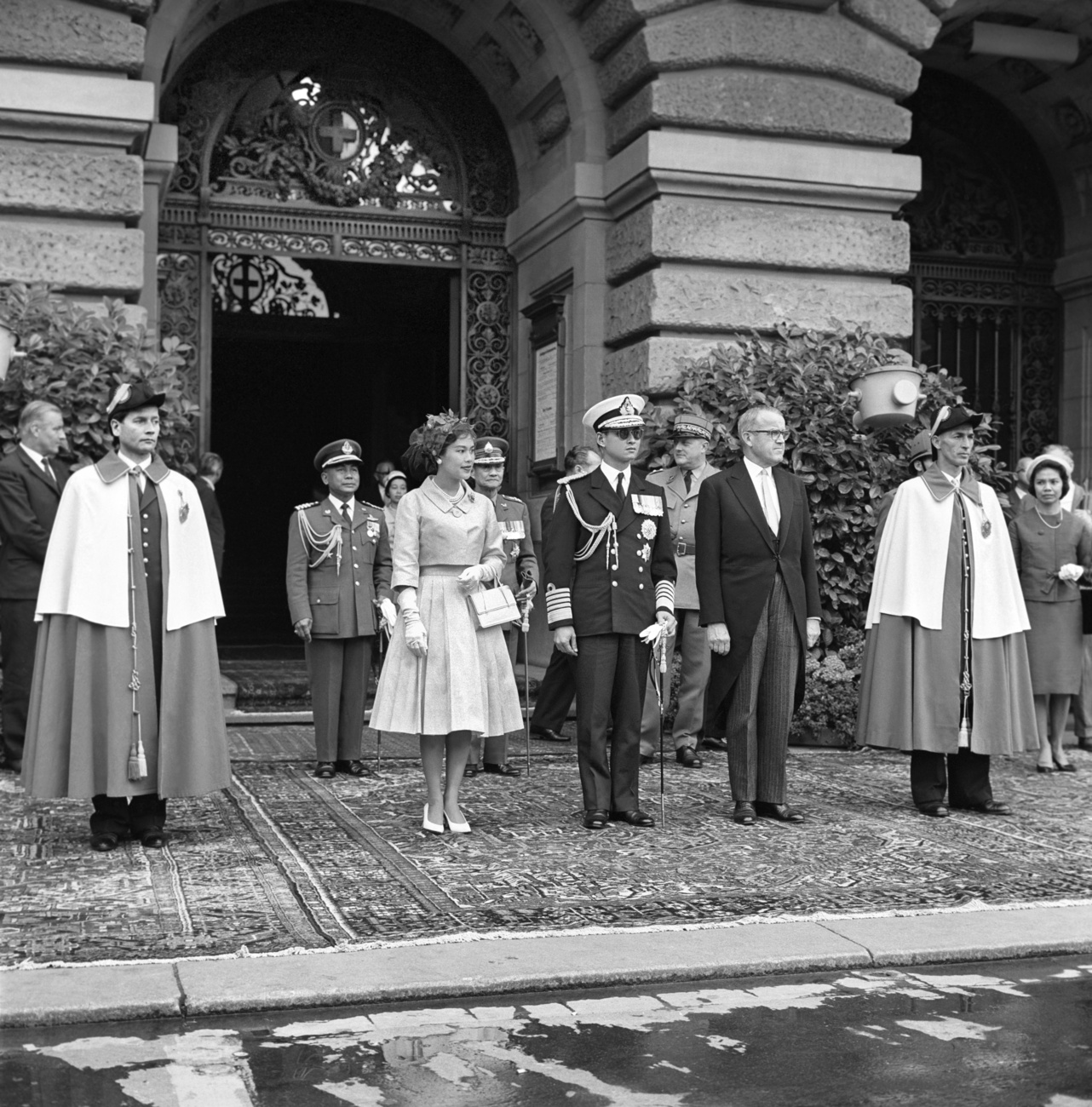
Swiss climate hearing to make history at Europe’s top human rights court
For the first time ever, the European Court of Human Rights in Strasbourg will consider the impact of climate change on human rights. The legal action taken by a Swiss association could create a precedent in Europe and the world, says Corina Heri of the Institute of Law of the University of Zurich.
On March 29, the Grand Chamber of the European Court of Human Rights (ECtHR) will hear not one but two climate cases, beginning with “KlimaSeniorinnen v. Switzerland”.
This case was brought by the KlimaSeniorinnen association, based in Zurich and made up of self-described “senior women” with an average age of 73. Before the ECtHR, they invoke the harmful effects of climate change on human life and health. More specifically, they allege violations of different rights enshrined in the European Convention on Human Rights (ECHR) given that, as older women, they are especially vulnerable to the effects of extreme heat. This case follows up on cases in Switzerland demanding a more ambitious Swiss climate policy, and particularly greenhouses gas emissions reductions, in line with the targets set out under the Paris climate agreement.
It seems that the Strasbourg Court will use the KlimaSeniorinnen case (along with twoExternal link others) to set clear and coherent standards on climate change that can be applied in future rulingsExternal link. The proceedings are complex: together, these three climate cases concern 33 Council of Europe member states, and they challenge established practice in different ways. The KlimaSeniorinnen case also involves an unusually large number of third-party interventionsExternal link, filed by governments, legal academics, climate scientists, NGOs, and other interested parties. Some of the expertise contained in these 23 written briefs will be presented orally during the hearing.
What can we expect?
It is difficult to make predictions about how the court will rule in the KlimaSeniorinnen case: several different outcomes are possible, beginning with the admissibility of the case. The Swiss government considers the case to be inadmissible, arguing that it represents a public interest case (a forbidden ‘actio popularis’ in the court’s parlance). In other words, it argues that the applicants’ rights have not been sufficiently affected to justify litigation. If the court agrees, its ruling could impact other efforts to mobilise human rights while the worst risks of climate change are still avoidable. This would not only affect future cases in Strasbourg but could also inspire domestic and international courts to adopt similarly restrictive approaches.

More
Is the climate crisis a threat to human rights?
However, it’s possibleExternal link that the court declares this case admissibleExternal link. It would consider whether Swiss climate inaction violates the right to life (Art. 2 ECHR) and the catch-all right to respect for private and family life (Art. 8 ECHR, which also protects mental and physical integrity). To support their case, the KlimaSeniorinnen have submitted scientific evidence demonstrating their demographic’s excess mortality during heat waves. How the court will respond to this argument is uncertain. While it has previously acknowledged that environmental harms can violate the obligations of states to protect life and health, this has never been applied to climate change, with its diffuse multi-actor causation and global impacts.
Impact on Switzerland
Doing so would cement the increasing, if tentative, willingnessExternal link of international human rights bodies to engage with climate change as a human rights issue. It could provide a roadmap for the interaction between human rights and climate law and science. And it would also vindicate the findings of domestic courts in other member states (such as the Netherlands and Belgium) which have already found that climate inaction violates the ECHR, providing an alternative to the unfavourable parallel approach under EU lawExternal link. Finally, it could invigorate ongoing effortsExternal link to recognise a self-standing right to a healthy environment under the ECHR.
What could be the outcome for Swiss climate policy if the applicants win their case? Most often, the court does not indicate what measures are needed to implement its findings under domestic law. This is left to the states themselves, who are more familiar with the domestic context, although under the supervision of the Council of Europe. In other words, if the court finds that Switzerland’s climate policy has violated the applicants’ rights to life and health, then it would most likely be up to the Swiss government to identify corresponding measures. However, the KlimaSeniorinnen have invited the court to make more specific orders in this case. They argueExternal link that Switzerland should be ordered to adopt a legislative and administrative framework that ensures net-negative overall emissions by 2030, and net-zero domestic emissions by 2050. This is certainly possible: the court has a corresponding if seldom-used power (under Art. 46 ECHR) and domestic courtsExternal link have made similar orders in climate cases. While it would be rather unprecedented for the court to follow suit, several third parties have furnished it with scientific expertise in this regard that could nevertheless empower it to do so.
Setting a course for the future
Even if the court does not find that the risks to the applicants’ life and health have violated the Convention, the KlimaSeniorinnen case could be important in other ways. For one, the case also alleges violations of procedural human rights, arguing that the Swiss legal system did not grant the applicants sufficient access to justice or an effective remedy (Arts. 6 and 13 ECHR). Engaging with these arguments could strengthen the role of domestic courts in future climate litigation cases both in and outside Switzerland.
Secondly, allowing the claims to be brought by the KlimaSeniorinnen association, rather than its individual members, would bring about a much-needed modification of the court’s admissibility requirements. Allowing environmental NGOs to bring cases for their members would improve access to justice concerning complex issues that are too demanding to litigate individually.
Irrespective of their outcome, KlimaSeniorinnen and the related cases draw attention to the very real risk to human rights posed by climate change. They are also likely to influence follow-up litigation and clarify open questions in this novel area of human rights law (such as those concerning causation, acceptable risk, and territorial jurisdiction). Overall, they require the court to re-examine its own role regarding large-scale problems. It must now set a course for the future, choosing between deferenceExternal link to domestic decision-making and strong protection of “living” human rights that can rise to new challenges.
The views expressed in this article are solely those of the author, and do not necessarily reflect the views of SWI swissinfo.ch.

In compliance with the JTI standards
More: SWI swissinfo.ch certified by the Journalism Trust Initiative
































You can find an overview of ongoing debates with our journalists here . Please join us!
If you want to start a conversation about a topic raised in this article or want to report factual errors, email us at english@swissinfo.ch.